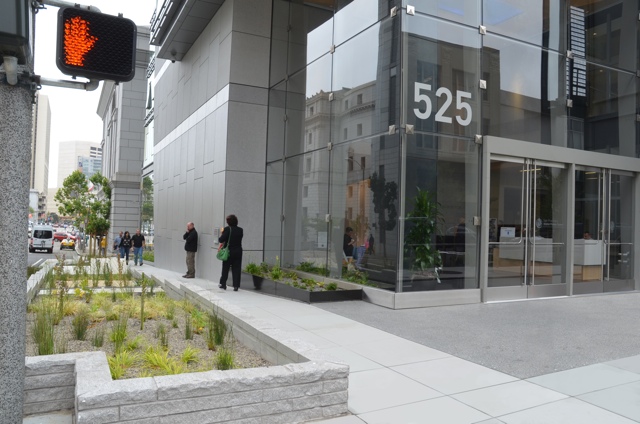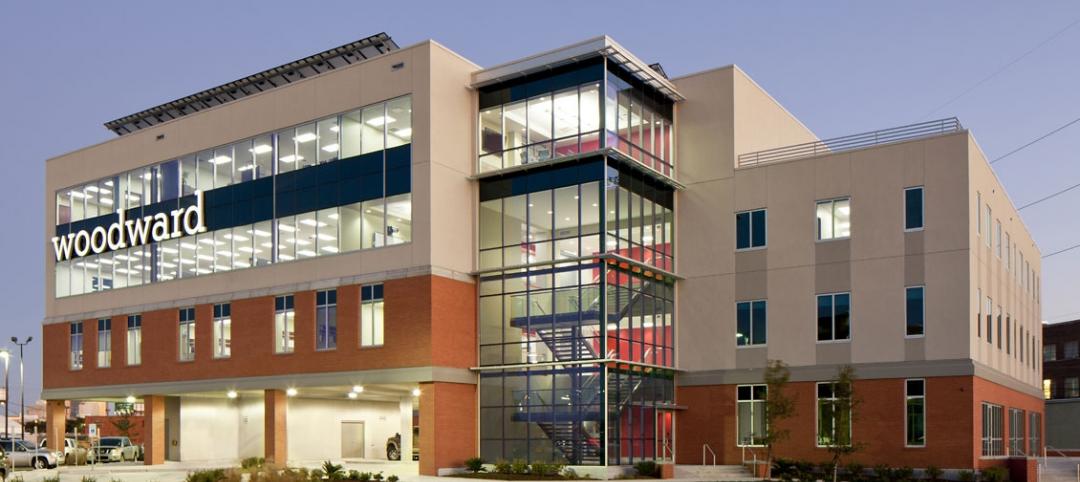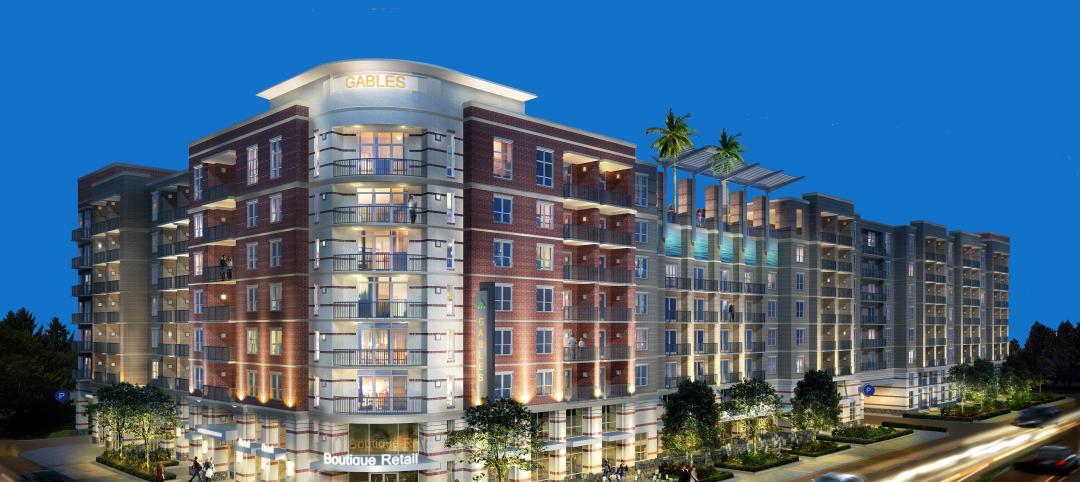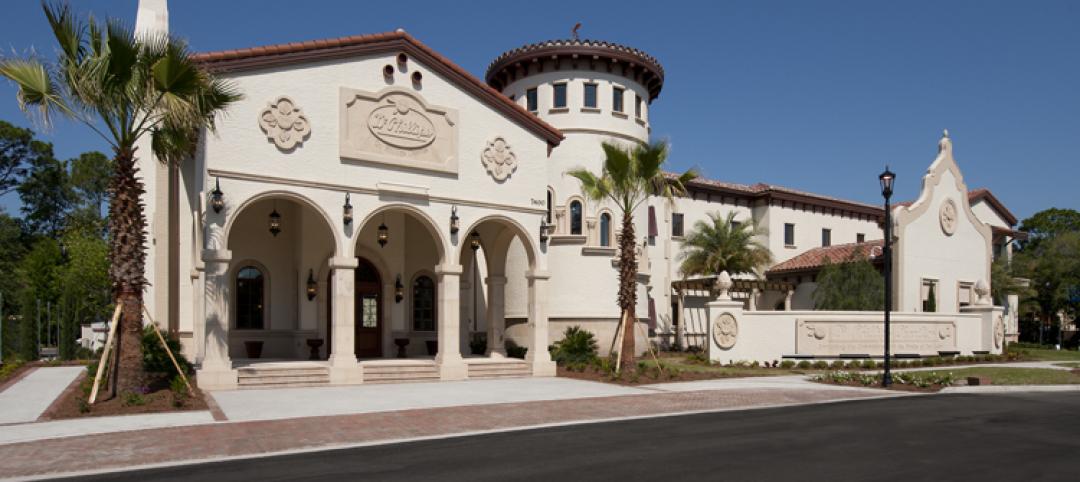Last week, the city of San Francisco announced the grand opening of the Greenest Urban Office Building in North America. The new San Francisco Public Utilities Commission Building (SFPUC) boasts new Living Machine technology, as well as LEED Platinum standards.
The 13-floor building can hold around 900 people, but consumes 60% less water and 32% less energy than most buildings of its kind. The building can achieve these high levels of conservation due it its on-site grey and black water treatment.
The technology for this treatment, The Living Machine, reclaims and treats all of the building’s wastewater– meeting the demand for all of the buildings toilets. The Living Machine can treat 5,000 gallons of water daily, reducing per-person water use from 12 to five gallons. The building also has a rainwater harvesting system that can store up to 250,000 gallons of water annually for use in the building’s irrigation systems.
As far as power goes, the building uses a greenhouse gas-free power from the Hetch Hetchy Reservoir, but also has an integrated hybrid solar array as well as a wind turbine that can generation about seven percent of the building’s annual energy needs.
The building was designed with a raised flooring system to house its data and ventilation infrastructure that also reduces heating, cooling and ventilation costs by over half. They also plan to do the more simple things, like automatically shut off workstation power after business hours, use more sustainable building materials, and limit parking to encourage alternative transportation among employees.
“The unique hybrid wind-solar installation combined with the use of onsite, recycled wastewater makes 525 Golden Gate one of the most self-sustaining buildings anywhere in the world,” said SFPUC General Manager Ed Harrington as part of the announcement. “We did not spare any detail to demonstrate the water-saving and energy efficiency revolution that all of us must start to embrace.”
However, the building cost the city a whopping $146.5 million– which brings back the argument between building new energy efficient buildings, or spending the money to make the ones we already have perform better. There isn’t a right answer, what’s probably best is for there to be a combination of the two– a new building should be built to high energy standards, but some time and resources should be taken to reboot the clunky power-wasters that remain in every city.
Employees are set to move in to their new space in July and August, and the building is set to be on track for its Platinum LEED ranking within a year of operation. The SFPUC estimates that building and owning its new headquarters will allow the department to save residents around $3.7 billion over the expected 100 year life of the building. +
--
Beth Carter is a contributing editor for SmartPlanet.
Related Stories
| Dec 6, 2011
Mortenson Construction completes Elk Wind Project in Iowa
By the end of 2011, Mortenson will have built 17 wind projects in the state generating a total of 1894 megawatts of renewable power.
| Dec 6, 2011
?ThyssenKrupp acquires Sterling Elevators Services
The acquisition of Sterling Elevator Services Corporation is the third acquisition completed by ThyssenKrupp Elevator AG in the last three months in North America.
| Dec 6, 2011
Vivenzio named vice president of building performance practice at Thornton Tomasetti’s New York Office
Vivenzio, a licensed architect in New York and New Jersey, has more than 28 years of experience in architectural project management, construction administration, building diagnostic services and forensic investigation.
| Dec 6, 2011
New office building features largest solar panel system in New Orleans
Woodward Design+Build celebrates grand opening of new green headquarters in Central City.
| Dec 5, 2011
New York and San Francisco receive World Green Building Council's Government Leadership Awards
USGBC commends two U.S. cities for their innovation in green building leadership.
| Dec 5, 2011
Summit Design+Build begins renovation of Chicago’s Esquire Theatre
The 33,000 square foot building will undergo an extensive structural remodel and core & shell build-out changing the building’s use from a movie theater to a high-end retail center.
| Dec 5, 2011
Fraser Brown MacKenna wins Green Gown Award
Working closely with staff at Queen Mary University of London, MEP Engineers Mott MacDonald, Cost Consultants Burnley Wilson Fish and main contractor Charter Construction, we developed a three-fold solution for the sustainable retrofit of the building.
| Dec 5, 2011
RJM Construction begins building Nova Classical Academy in St. Paul
As the general contractor, RJM is constructing the 94,000-sf building that will consolidate the St. Paul school’s two other locations.
| Dec 5, 2011
Gables Residential brings mixed-use building to Houston's Tanglewood area
The design integrates a detailed brick and masonry facade, acknowledging the soft pastel color palette of the surrounding Mediterranean heritage of Tanglewood.
| Dec 5, 2011
SchenkelShultz Architecture designs Dr. Phillips Charities Headquarters building in Orlando
The building incorporates sustainable architectural features, environmentally friendly building products, energy-efficient systems, and environmentally-sensitive construction practices.

















